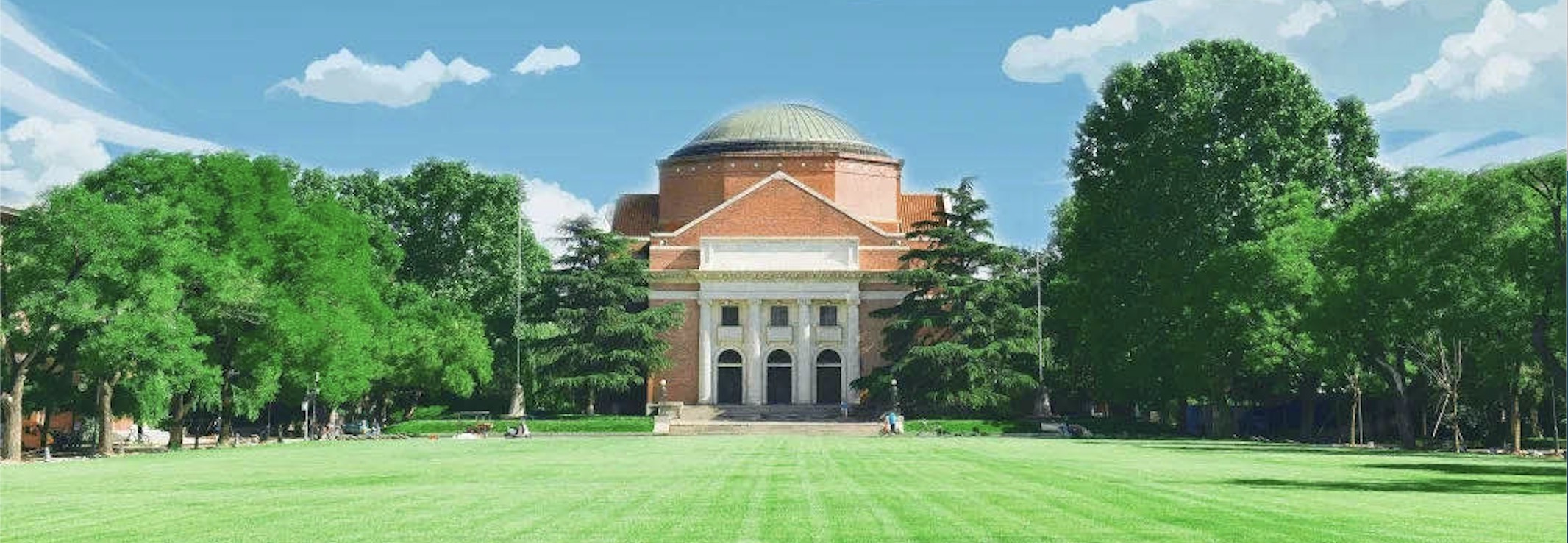In January 2025, a group of 21 graduate students from Tsinghua University's School of Journalism and Communication embarked on a transformative journey to Nigeria. The research trip, titled “Starting from Nigeria: Exploring Sino-African Cultural Exchange and Mutual Learning,” was more than just an academic exercise. It was an opportunity for these young scholars to immerse themselves in a world of vibrant cultures, complex partnerships, and emerging opportunities, all while deepening their understanding of China’s evolving role on the African continent.
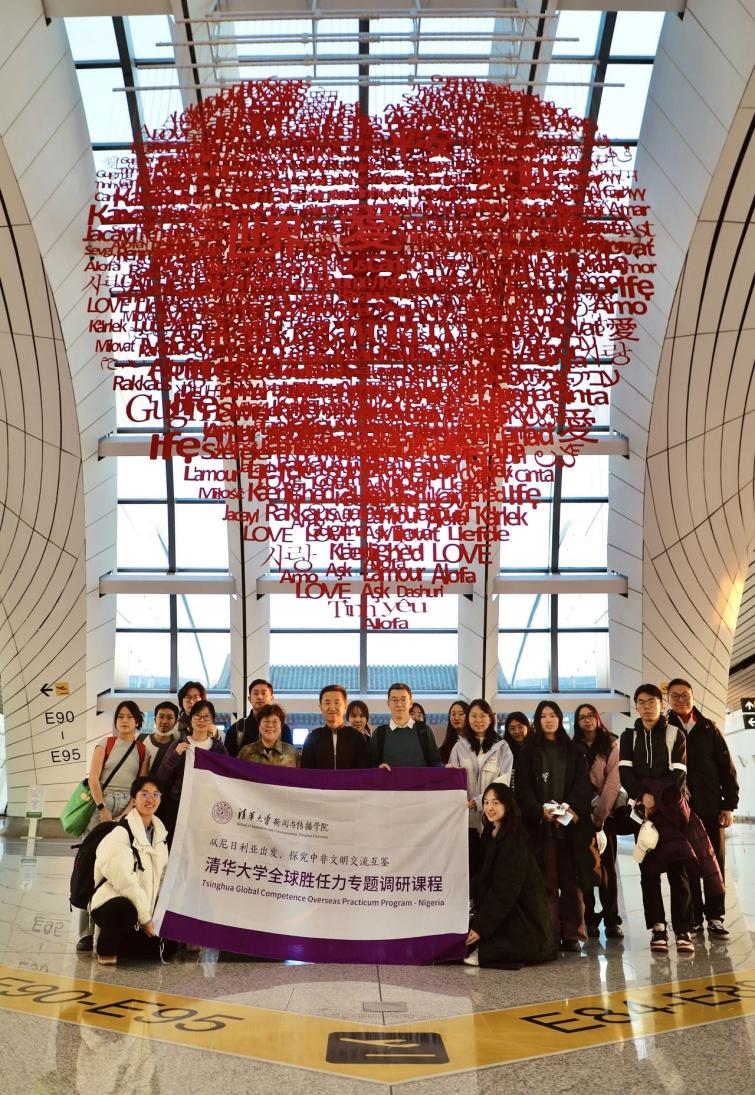
The trip came at a time when Sino-African relations were entering a new phase. In September 2024, the China-Africa Cooperation Forum Summit in Beijing marked the beginning of a new chapter for both regions, with an emphasis on mutual growth and closer ties. For Nigeria, one of Africa’s largest economies and a key partner for China, the timing was particularly significant. The Tsinghua team’s goal was to explore the real-world impacts of this partnership and discover how cooperation in infrastructure, media, education, and cultural exchange was unfolding on the ground.
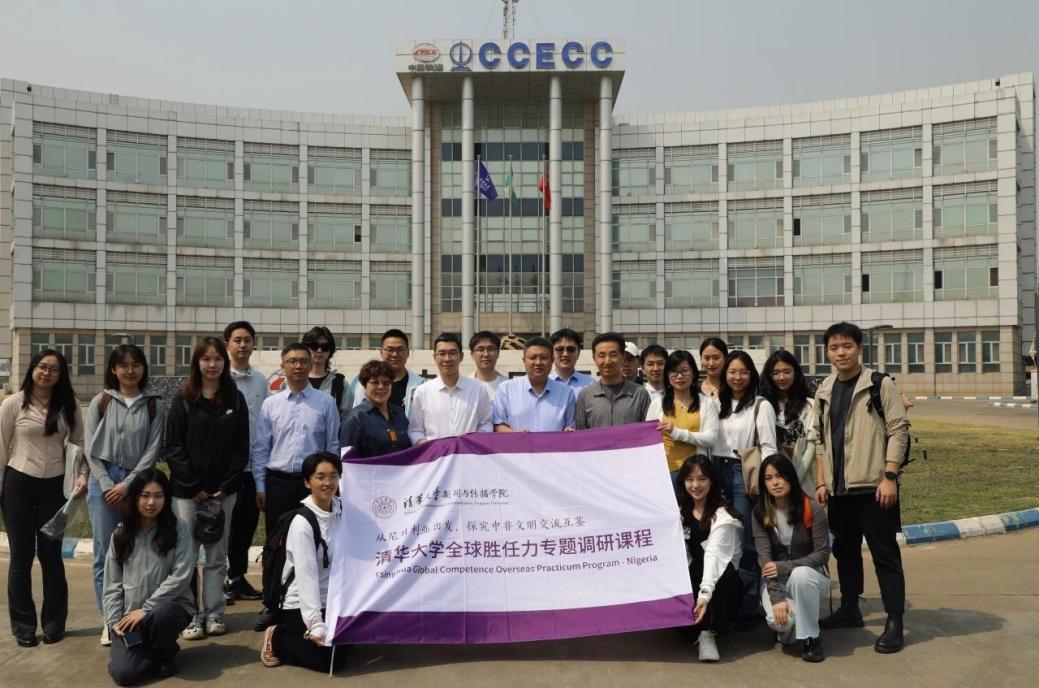
Their journey began in Abuja, Nigeria's capital, where they met with officials from China Civil Engineering Construction Corporation (CCECC). The conversation quickly turned to the Lagos Blue Line light rail project, a critical infrastructure venture that will revolutionize the city’s transport system. With CCECC staff sharing firsthand accounts of the project’s progress, the students learned how China and Nigeria’s collaboration was not just about building roads and railways but about constructing bridges between cultures. The work was as much about localizing labor and technology as it was about connecting two nations with a shared vision for the future.

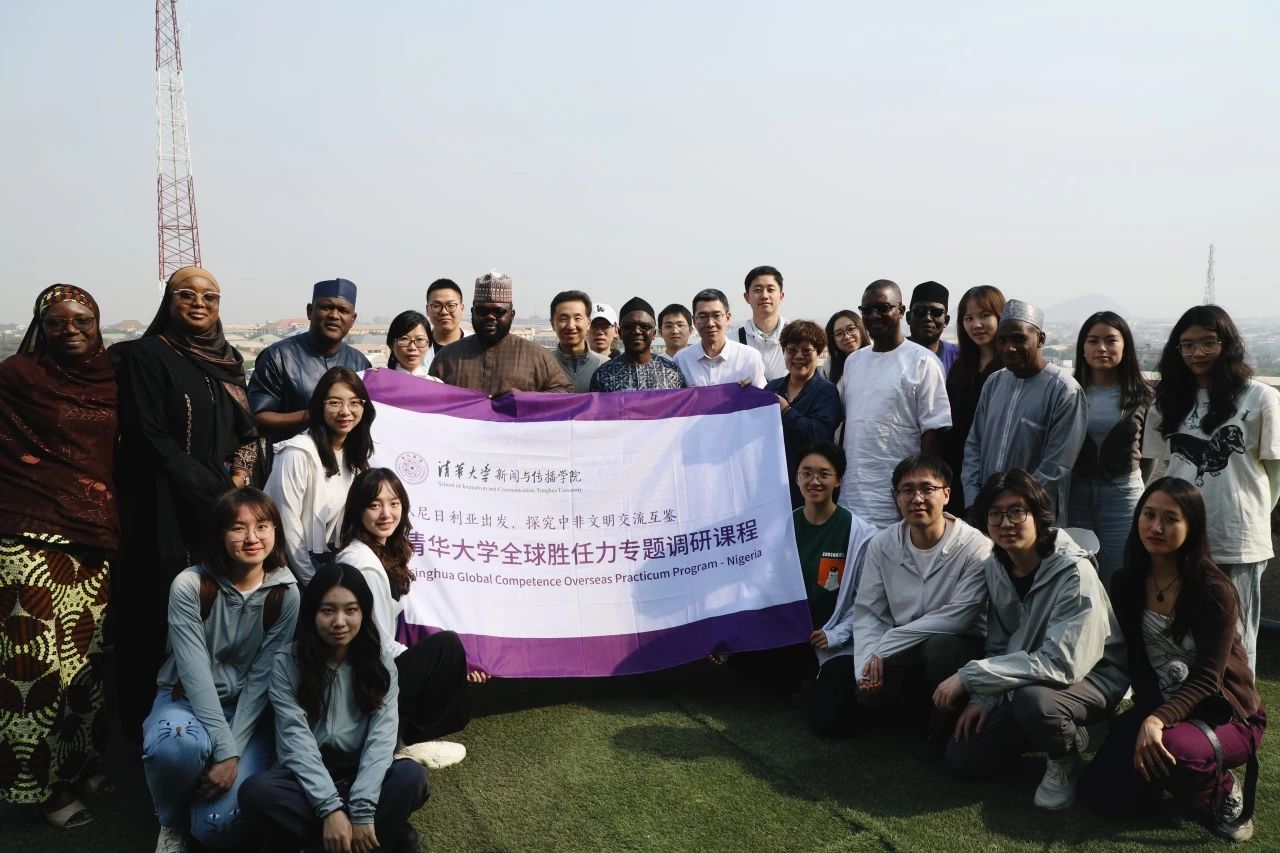
Later, the team visited Daily Trust, one of Nigeria’s leading m·edia outlets, where they saw how journalism is evolving in an age of digital transformation. The editors and journalists discussed how agriculture, a cornerstone of Nigeria’s economy, was given a prominent voice in their coverage. Yet, it was clear that the role of media in fostering Sino-African dialogue was just as significant. The students, some of whom specialize in media and communication studies, found themselves deeply engaged in conversations about how both China and Nigeria could leverage the power of media to promote understanding, exchange, and collaboration.
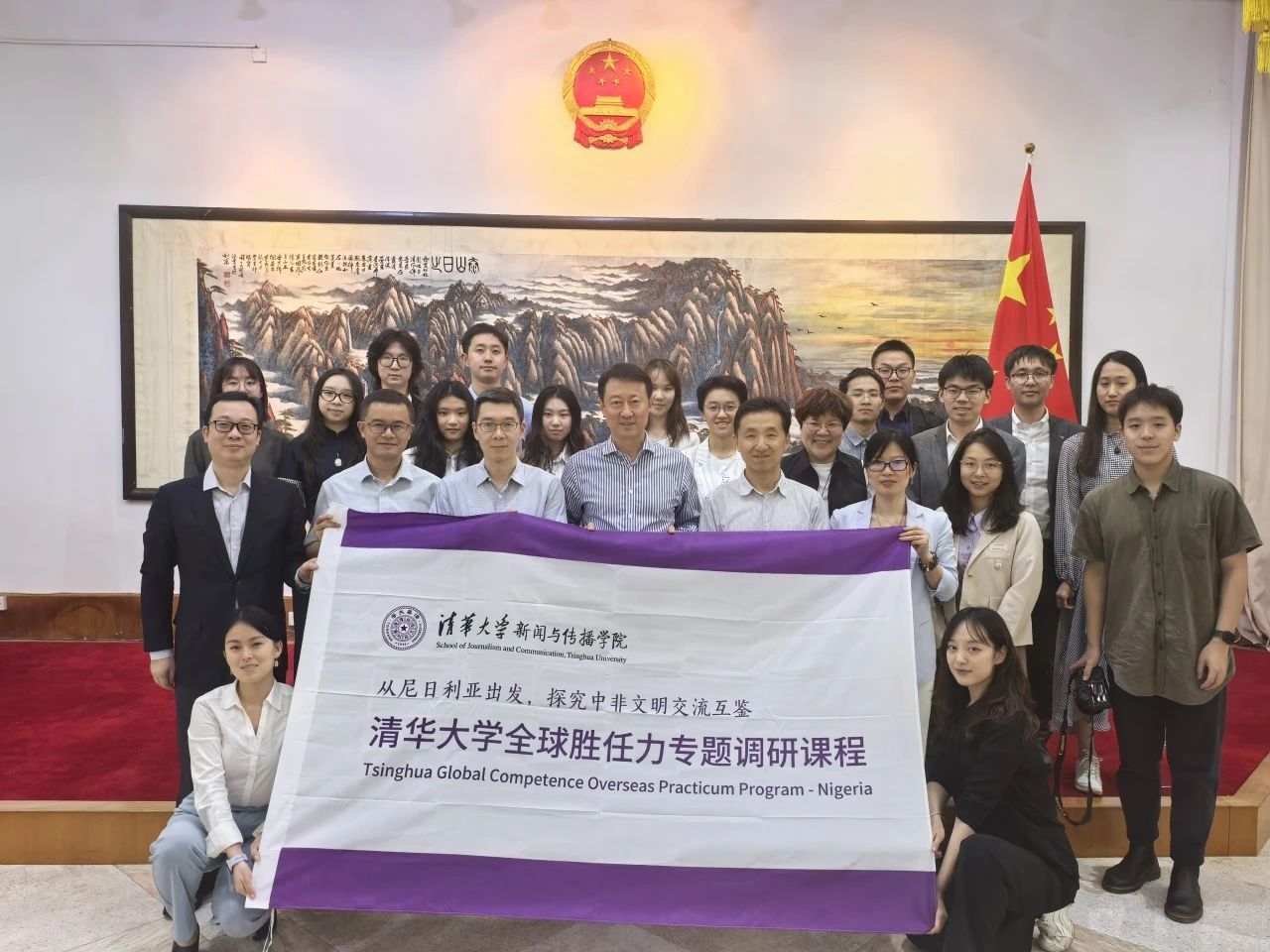
A pivotal moment of the trip came when the group visited the Chinese Embassy in Abuja. Ambassador Yu Dunhai welcomed the students and shared insights into the deep historical ties between the two countries. What stood out during their meeting wasn’t just the diplomatic history but the palpable sense of friendship between the two nations, built on shared values of respect, peace, and development. The discussions turned to the importance of youth exchanges, which the students found particularly moving. After all, they represented the future of this partnership—young people who would carry the torch forward and shape the next chapter of Sino-African relations.
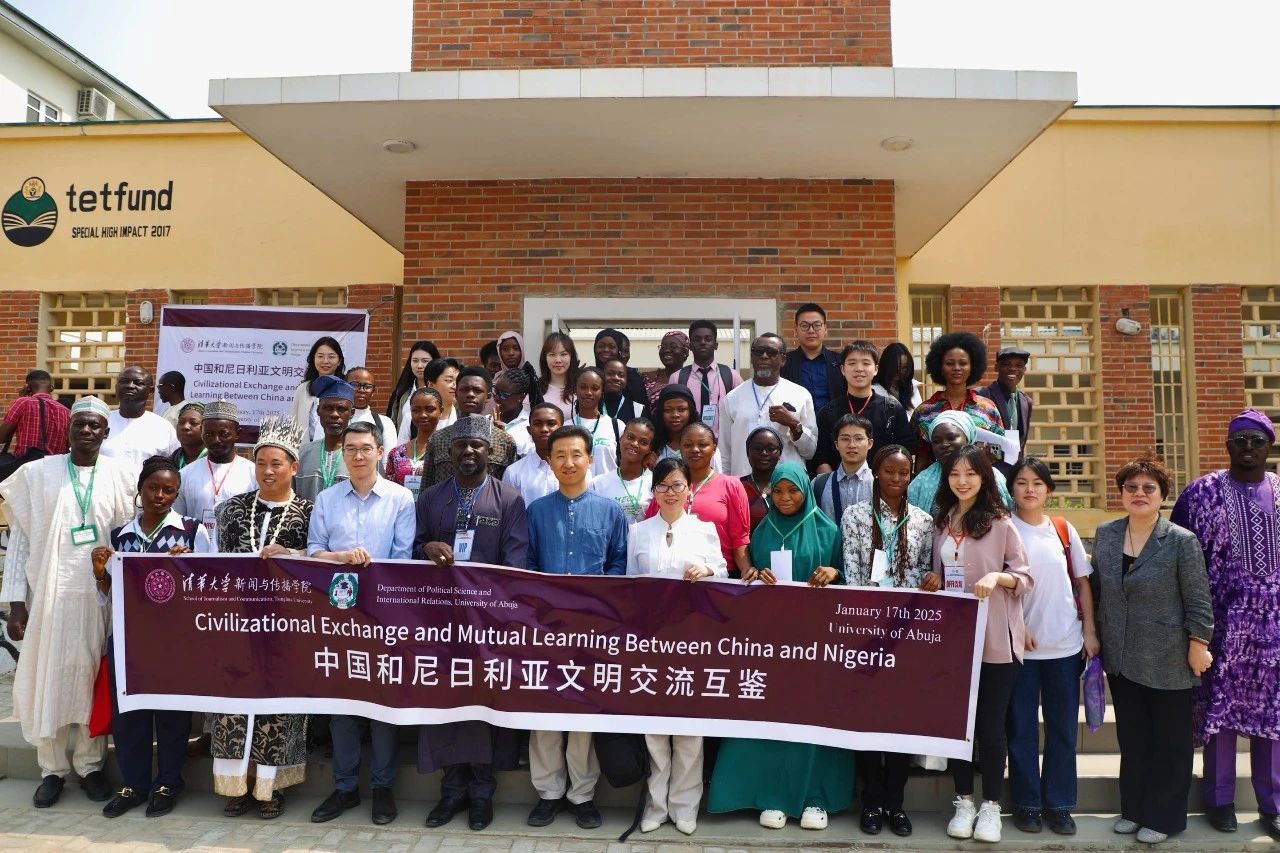

In the bustling heart of Abuja, the group also participated in an academic seminar at the University of Abuja, focusing on Sino-African cultural exchange. The seminar was a powerful reminder of the value of dialogue in an increasingly interconnected world. As scholars from both countries discussed their common goals—mutual respect, peaceful development, and cultural understanding—it became clear that academic collaboration could play a crucial role in achieving these ambitions. The Tsinghua students left the seminar inspired by the commitment to continue fostering these essential connections.
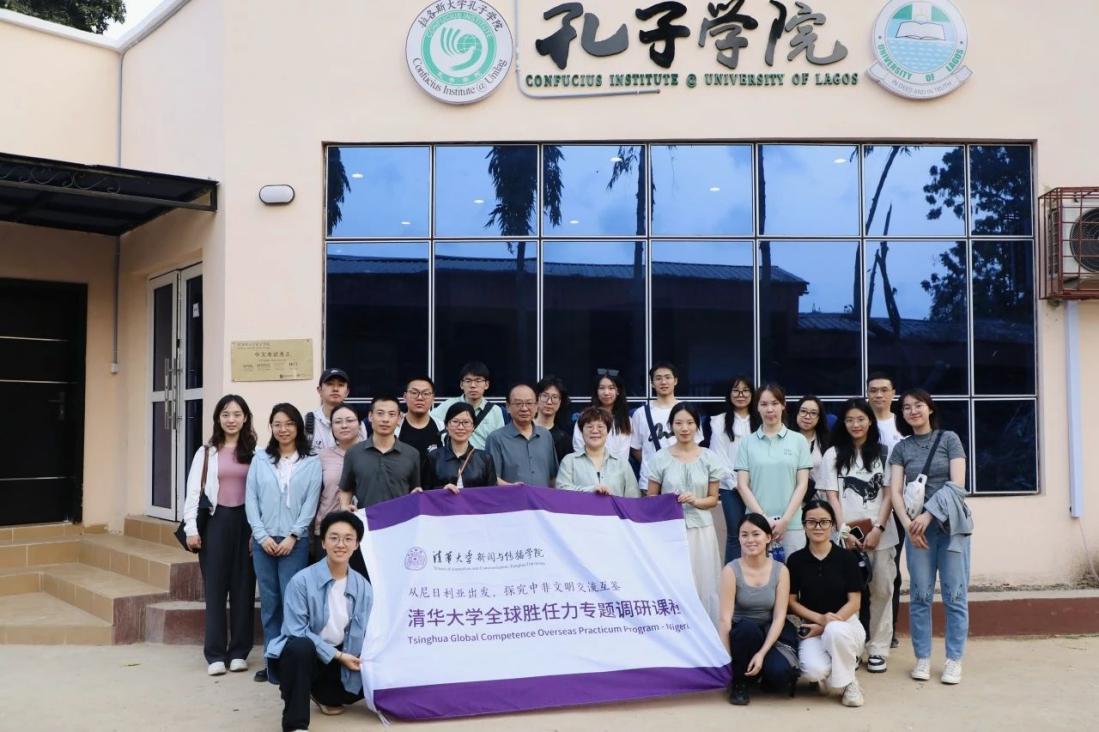
Another highlight of the journey was the visit to the Confucius Institute at the University of Lagos. Here, students were introduced to the dedicated work of spreading Chinese language and culture across Nigeria. Professor Zhao Hongling shared how the institute, which has been operational since 2009, was not just about teaching Mandarin but also about offering Nigerian students a gateway to careers in Chinese companies. For many, it was a chance to improve their livelihoods, and the students were struck by the real-world impact of education in strengthening bilateral ties.
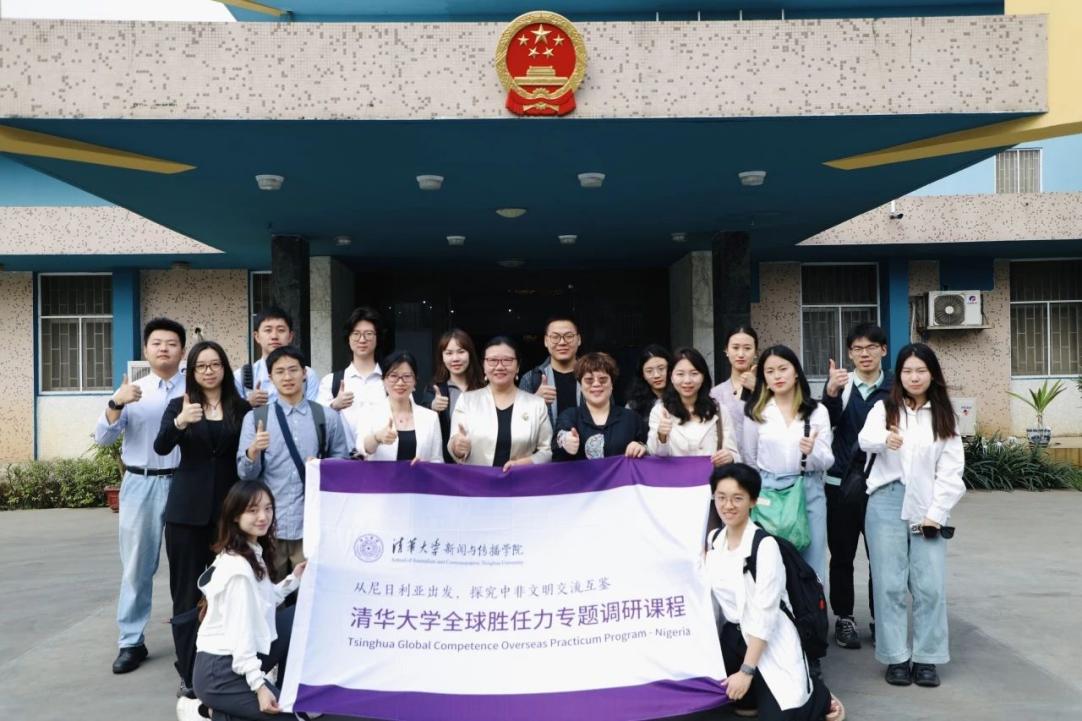
Cultural exchange was also at the heart of the group’s visit to the Chinese Consulate in Lagos, where they participated in a lively seminar on Sino-Nigerian cultural relations. The event highlighted the role of art in bringing people together. Members of the Chinese community in Nigeria shared stories of their work with the Huaxing Art Troupe, a cultural group that performs traditional Chinese and Nigerian dances. Through these performances, they have helped foster a greater appreciation for each other’s cultures, serving as a living example of how art can transcend borders and build lasting connections.
The Tsinghua students also had the chance to visit a rural village, Imokun, where they saw the impact of China’s “Access to Satellite TV for 10,000 African Villages” project. This initiative, aimed at providing rural communities with satellite television, has been a game-changer for many in the area. Despite challenges, such as limited power infrastructure, the project had already begun to bridge the digital divide, showing the transformative power of collaboration. This visit left the students with a profound sense of how China’s contributions were not merely about providing resources, but about creating opportunities for self-reliance and empowerment.

One of the most exciting moments of the trip occurred when the team was invited to the Good Morning Nigeria show, Nigeria’s National Television Authority (NTA)’s flagship morning program. Professor Zhao Yuezhi, a distinguished scholar from Tsinghua University, participated in the discussion alongside prominent Nigerian experts. The conversation centered around the current state and future of Sino-Nigerian relations. Zhao emphasized the importance of youth exchanges, stating that the younger generation holds the key to shaping the future of Sino-African cooperation. She argued that young people should be actively involved in the dialogue and collaboration between the two nations, highlighting the pivotal role they play in fostering understanding and advancing mutual interests.
As the trip drew to a close, the Tsinghua delegation found themselves reflecting not just on what they had learned, but on the future they would help shape. Their time in Nigeria had deepened their understanding of the growing Sino-Nigerian partnership, a relationship built on shared goals of development, cooperation, and mutual respect. The trip underscored the importance of cultural and educational exchanges in strengthening these ties, and it left the students eager to carry forward the lessons they had learned in their own work and future careers.
The journey to Nigeria was more than an academic research trip; it was a reminder of the power of people-to-people connections and the potential for global collaboration. As China and Nigeria continue to strengthen their partnership, the students from Tsinghua University have seen firsthand the role they will play in the ongoing story of Sino-African cooperation.
